
Lajme
Shqipëri Maqedoni Foleja.com ImpresumOp/Ed
Shkurt e ShqipSport
string(124) "interview-edward-p-joseph-ideally-the-association-would-be-negotiated-as-a-final-status-issue-where-serbia-recognizes-kosovo"English

Gazeta Express
22/01/2022 17:58Interview | Edward P. Joseph: Ideally, the Association would be negotiated as a final status issue where Serbia recognizes Kosovo
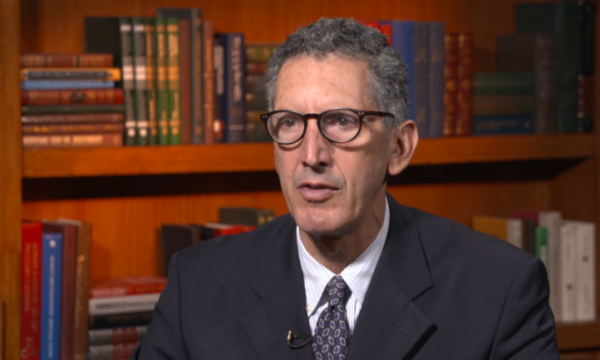
English

Gazeta Express
22/01/2022 17:58Edward P. Joseph, professor at Johns Hopkins University in Washington, in an exclusive interview with Gazeta Express explains in details some of the issues covered in the Report dubbed: “From Crisis to Convergence: A Strategy to Tackle Instability in the Balkans at its Source,” and the letter that US Secretary of State, Antony Blinken, addressed recently to Kosovo Prime Minister, Albin Kurti.
Gazeta Express / Interviewed by: Besnik Veliu
Edward P. Joseph reveals why the Report recommends sanctioning leaders in Albania or Kosovo who promote any ‘union’ between the two independent countries, and appointing a special US envoy for Kosovo recognition by the five EU member states which have not recognised Kosovo so far.
Joseph in his interview also explains in details the conclusion of the Report about Kosovo Government’s ambiguity related to its geo-strategic orientation, mentioning Trans-Adriatic pipeline. Further Edward P. Joseph in his interview comments the main messages of US Secretary of State Blinken letter addressed to Kosovo PM Kurti, and Kurti’s announced visit to the US and what should happen with the Agreement on establishment of the Association of Serb-majority Municipalities and the issue of Decan Monastery land dispute.
Gazeta Express: When you talked about sanctions, what exactly did you mean? Ex. Because if there will be sanctions for Prime Minister Kurti from the US,he would have to resign, and that would likely cause another stalemate in the dialogue process.
Edward P. Joseph: The proposed sanctions in the report are coupled – intentionally and clearly – with a wider commitment from the US to achieve full international recognition for the Republic of Kosovo – not the Republic of Kosovo and Albania, or similar. Why should the US appoint a Special Envoy for Kosovo Recognition, among other steps in this direction, if Kosovo is working to undermine the concept for Kosovo that the US and its allies hold for the country?
The point is that recognition of Kosovo means Kosovo as a unitary, functional country within its present borders – not in federation or confederation with Albania. Neither ‘Greater Albania’ and ‘Greater Serbia’ is in US interests; it is against US interests.
Nor is it in Kosovo’s interests. For example, Greek recognition could be transformative for Kosovo and the region. But it is clear that Athens – like Washington – does not see stability emerging from any ‘union’ or partition of Kosovo. As we cite in our Johns Hopkins SAIS-Wilson Center report, influential Greek commentators expect a treaty between Pristina and Athens ruling out such adventures.
The threat of sanctions is important for all parties:
For Pristina to understand the principle and vision for Kosovo that attracts US and allied support.
For Athens and other non-recognizers to understand that the US commitment is about backing Kosovo’s sovereignty – not backing dreams of national consolidation of the Albanian people.
For Serbia and its backers in Russia, China and elsewhere to see that the US has a strategic approach, grounded in democratic, multiethnic coexistence – not favoring Albanian national ambitions over Serb national ambitions.
Gazeta Express: The report also specifies an ambiguity of Kurti regarding the strategic orientation of Kosovo. You mentioned the issue of the US-backed pipeline. So you imply that the issue of the pipeline is not just a matter of “pipes” as Prime Minister Kurti said, but it is a matter of strategic orientation that would repel Russian influence in the region.
Edward P. Joseph: The Trans-Adriatic Pipeline is part of wider strategy to diversify energy sources in the region. Given the current threat of a Russian invasion of Ukraine – where Moscow uses the implicit threat of cutting off energy supplies to Europe – the need to diversify is obvious. The electricity crisis in Kosovo, and the hike in prices, makes the case for the TAP even more logical. It was good that Kosovo Foreign Minister Gervalla discussed the pipeline among other issues, in her meeting yesterday with Greek Foreign Minister Dendias. This meeting was another good sign for the ‘convergence’ approach that we recommend in our SAIS-Wilson Center report.
Gazeta Express: How long has this whole report taken you, has there been an issue that you did not agree with the co-authors. If yes, on what issues? And Have you sent this report to important addresses of international political decision-making?
Edward P. Joseph: This report is the result of lengthy reflection, initiated by me in the fall of 2020 with the anticipated election of Joe Biden as President. I have worked in and on the region almost since war broke out in Bosnia (I arrived in August, 1992, three months after the start of the war.) I’ve served in all conflict areas during the wars: Bosnia-Herzegovina, Croatia, Kosovo and North Macedonia. I also served as Deputy Head of the OSCE Mission in Kosovo, including in 2012. I negotiated the agreement to hold Serbian national elections in Kosovo in May, 2012.
As we write in the report, the alarming deterioration in the region is a ‘voluntary.’ The US, EU and NATO hold the strategic advantage over the entire region (unlike in Ukraine.) It is simply unfathomable that thirty-years after war broke out, there is again talk of war in Bosnia-Herzegovina, confrontation in Kosovo and unprecedented tensions in Montenegro.
The report tackles the core question: why are the Balkans still in such disarray after so many years and so much effort? We identify the source: Serbia’s inability to accept the Western order. We identify the reason for this inability: the leverage that Serbia holds over Kosovo – and the US and EU. We identify the solution to this condition: erode, and eventually eliminate Serbian leverage over Kosovo. This is done through change in the positions of the four NATO countries that don’t recognize Kosovo: Greece; Spain; Slovakia; and Romania. We spell out how this can be accomplished in a very practical way, working principally with Greece and principally within NATO.
Gazeta Express: Did you have the chance to read the letter from Secretary Blinken to Prime Minister Kurti, and what are your conclusions for that letter?
Edward P.Joseph: Yes, I read the letter and it’s very clear: it’s a positive, supportive letter from Secretary Blinken, aimed at reinforcing the efforts of the two named US diplomats, Ambassador Hovenier and Special Envoy Escobar. Secretary Blinken is setting the expectation of cooperation on the specific issues cited in the letter. The letter is drafted diplomatically.
Gazeta Express: Starting by the end of last year, PM Kurti mentioned a possible visit to the US. Last time when Kurti talked about this possible visit to Washington said that he may will travel to DC on the beginning of 2022. Do you see this letter of Secretary Blinken as a sign “cancelation” of this possible visit of PM Kurti to Washington? I mean do you see any reason for Kurti to visit Washington after that letter which contains everything?
Edward P. Joseph: This letter has no such connection to a visit, and the word ‘cancellation’ should not be used in connection with this letter. It represents the expectations of the US on key American priorities. Of course, whether such a visit happens and at what level is another matter. Such visits are always linked to the state of relations and developments. No doubt Washington is looking for progress on the issues cited in the letter, and that could indeed be a factor.
Gazeta Express: Do you believe that PM Kurti will fulfill those US requests on Blinken’s letter, based on Kurti’s past and political stands and activity (Association of Serbs municipalities and Decani’s Monastery).
Edward P. Joseph: I won’t predict what PM Kurti will do. I can state that I see the ‘Association/Community of Serb Majority Municipalities’ as a distinct matter from Decani Monastery and related judicial rulings. Kosovo, unlike Serbia, is a democracy headed in the right direction, with growing respect for rule of law. Respecting the rulings of the Constitutional Court is an ironclad obligation for Prime Minister Kurti – or any Kosovo Prime Minister. The ‘Association/Community’ is an obligation of a different sort; this is a political matter linked to a wider process with Serbia. Ideally, the ‘Association/Community’ would be negotiated as a final status issue, as part of the settlement wherein Belgrade recognizes Pristina. Putting this ahead of final status creates complexities in the EU-led Dialogue, where Belgrade already holds the strategic advantage. (Belgrade is satisfied if nothing happens in the Dialogue, leaving Kosovo in its current limbo position.)
The relations of the Kosovo Serb community as a bloc – and with Belgrade – are directly linked to Kosovo’s sovereignty and internal functionality. At the same time, formally Kosovo is obligated on the ‘Association/Community.’ The US and EU should find ways to address this negotiating challenge. In our report, we recommend advancing Kosovo’s relationship with NATO, for example, bringing Kosovo into NATO’s Partnership for Peace, among other steps. This can solidify Kosovo’s position making some progress on the ‘Association/Community’ possible, although final negotiation awaits a final settlement. /GazetaExpress/
Të tjera nga rubrika
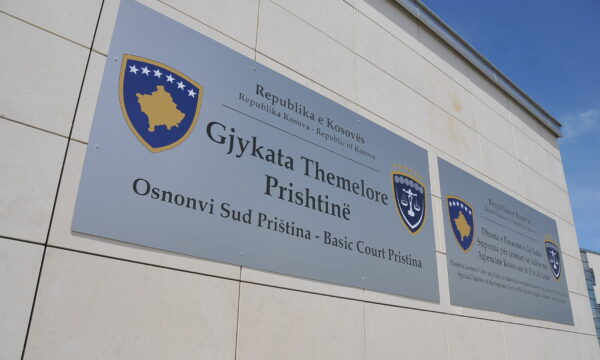
The Basic Court dismisses the indictment against Klodian Allajbeu, Ekrem Lluka and others

Jessica Simpson Takes Lookalike Daughter to Paris For 13th Birthday Amid Divorce

British couple die after Ferrari plunges off mountain in Spain
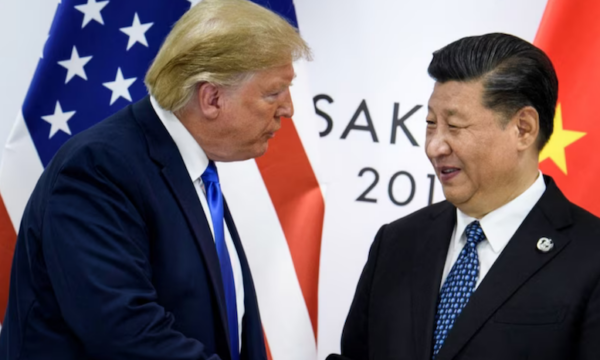
Tariffs Temporarily Cut As Talks Narrow Differences
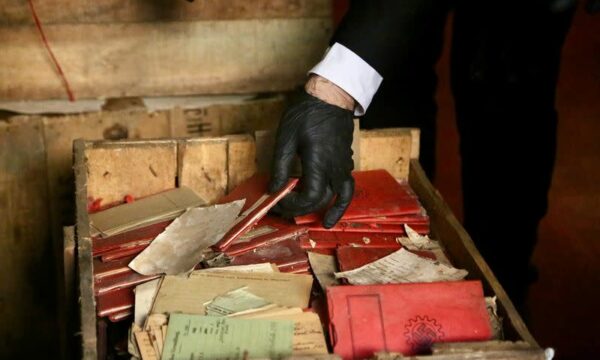
Argentina’s top court finds 80 boxes of Nazi materials in its basement

Why The Tops Of Microwave-Baked Treats Are Ugly And How To Fix Them
Te fundit

Arrestohet i dyshuari për vrasjen me thikë në Prizren
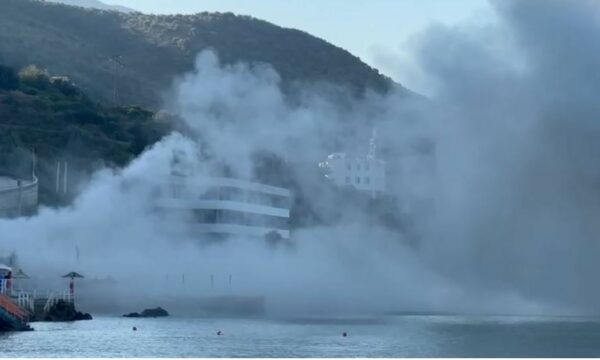
Shembja me tritol e ndërtesës në Radhimë – Rama: Do ta shkruajmë me se s’bën kapitullin e fundit të betejës me paligjshmërinë

Tejkalim i rrezikshëm në rrugën për Gjilan – familja e mërgimtarit nga Anglia i shpëton për pak aksidentit fatal (Pamje)

Vriten pesë gazetarë të televizionit “Al Jazeera” nga një sulm izraelit në Gaza

Aksident i rëndë në Bresje – vetura përplas biçikletën, 10-vjeçari në gjendje të rëndë në QKUK
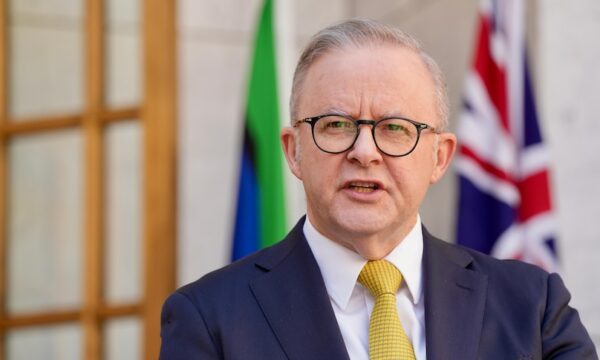
Australia thotë se do ta njohë shtetin palestinez
✕





